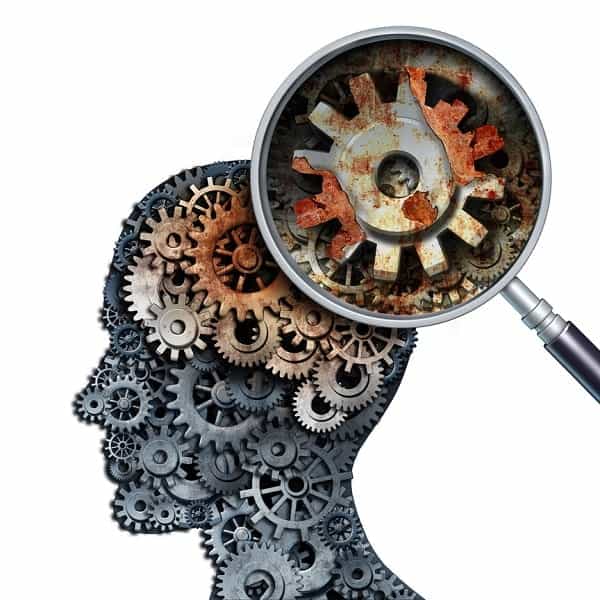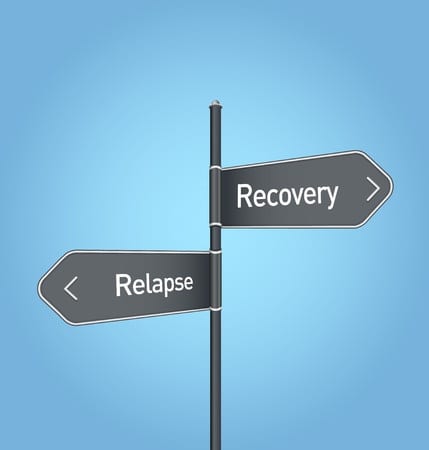“In the past 20 years, a paradigm shift has occurred – the concept of recovery has firmly taken root in our collective consciousness… People from all over the world are starting to discover the joys of physical, emotional, and spiritual self-care.” ~ Erica Spiegelman, Rewired: a Bold New Approach to Addiction and Recovery I recently celebrated my 10-year anniversary as a clinician specializing in addiction recovery, and as I look back, I can see my career’s highs and lows – the triumphs and failures. In my time working in the addiction field, I have worked with literally thousands of substance abusers and their families. They all come in for different reasons – some are compelled by the Court, many are there because of pressure from their loved ones, and most of them come to see me because they are at the end of their ropes. But all of them want the same thing – to break free from the chains of active addiction and return to some sort of “normal life”. My triumphs include people who have been able to do exactly that. They learn how to manage their disease of addiction, and now they live happy and productive lives, free from the influence of alcohol or illicit drugs. My failures include people who have dropped out of treatment or suffered relapse after relapse. I’ve even lost some clients forever when they passed away due to an overdose. Through it all, I’ve learned a number of invaluable lessons – lessons that go far beyond the theories that I was taught during my training. I would like to share what I’ve learned, in appreciation for the souls who have graced my life.
Lesson #1 – Addiction Is a Disease
Once upon a time, people who overindulged with alcohol and drugs were thought to be “morally bankrupt” – that their problem was not one of consumption, but rather one of willpower. They were admonished to use “self-control” to “get a hold of themselves”. Modern medical science has clearly demonstrated that chronic substance abuse – whether alcohol or drugs – causes physical and chemical changes within the brain. A person becomes physically dependent upon the substance of choice, to the point that they are unable to control their consumption. They actually become incapable of functioning to any degree unless they are under the influence. Morality, willpower, and good intentions simply do not matter. You cannot “will” your way out of the disease of addiction, any more than you can make your mind to not have cancer or diabetes. In practice, this was clearly demonstrated to me by clients who came in desperately – they were facing legal troubles, they had lost their families, their homes, and their jobs, and in many cases, their physical health was in jeopardy. They would come in, knowing clearly that their drugs/alcohol use was to blame, yet they would still use and drink. They hated what their addiction was doing to them, but they were unable to stop – no matter what. 
Lesson #2 – Different Strokes for Different Folks
Although genetics seems to play the largest role, there are many causal factors that can influence whether or not a person is at risk for addiction –
- Genetics
- Home environment
- Peer pressure/social environment
- Personal trauma
- Co-occurring mental disorders
- Personal habits and coping skills
- The substance of choice
Because there are so many influences, there is no “one-size-fits-all” approach to treatment that is always 100% successful. I learned that the disease of addiction must be addressed on multiple levels – medical, physical, emotional, psychological, spiritual, nutritional, etc. – in order for the chances of a successful recovery to be maximized. This is especially true in the case of any co-occurring mental disorders such as anxiety, depression, or bipolar disorder. If a person is suffering from any of these and the condition remains untreated, any attempts at recovery from addiction are virtually doomed to failure. One of the most valuable lessons I learned as an addiction specialist is to know when to refer my client to other services. When I work in cooperation with other health professionals, I’m able to offer the best treatment for my clients. 
Lesson #3 – Relapse Is a Part of Recovery
When a person is first starting out on the road to recovery, their brain doesn’t automatically become “rewired” back to normal just because they are in a structured plan. It takes a lot of hard work and repeated positive behaviors over time for progress to be made. This means that the substance abuser is always at risk of relapse – returning to drug use, and this is especially true during early recovery when withdrawal symptoms and cravings are the most severe. Most people have to repeat drug rehab more than once, in order for their recovery to eventually succeed. Let me be clear – relapse is never acceptable. Every time someone goes back into the drug world, there is no guarantee that they will ever come back. However, relapse is always possible. If any recovering addict or alcoholic is in the wrong place, at the wrong time, with the wrong people, and in the wrong frame of mind, the temptation may prove to be too great. That is why a person in recovery must always remain hyper-vigilant. However, a slip or relapse does not mean the end of recovery. As I tell my clients, if you fall down – GET UP. 
Lesson #4 – the Family Plays a Vital Role
Addiction is a lonely disease that devastates the lives of everyone around the substance abuser. When a person abuses drugs or alcohol, their family suffers right alongside them. During active addiction, the entire family learns dysfunctional behavior – codependency, deception, poor coping skills, etc. Oddly enough, though, however, the need to preserve family relationships is usually the biggest motivator when it comes time to compel a suffering addict into treatment, usually through a professionally-directed intervention. However, after treatment for the addict has begun, everyone in the family also needs professional therapy and counseling, primarily to address the trauma they have experienced, but also to learn new productive ways of interacting with their addicted loved one. During my sessions with families, we talk about how to –
- Set boundaries and consequences
- Detach from an active addict
- End codependency
- Communicate effectively
- Focus on themselves, rather than the addict
- Support recovery and sobriety through encouragement
- Set realistic goals
- Most importantly, how to change daily habits that encourage substance abuse

Lesson #5 – Recovery Isn’t Easy
When I first get out of training, this was the most surprising lesson of all. I believed that if the suffering addicts and alcoholics who came to see me would simply go down the recovery “checklist”, everything would be okay in short order. I forgot about the human element. Recovery is so hard because it requires patience, constant effort, compromise, and unflinching honesty – all qualities that are not usually supported during addiction. All of these qualities need to be carefully cultivated and nurtured during treatment because their natural inclination will be to rebel. When stresses, triggers, and temptations arise, the recovering addict/alcoholic’s first impulse will be to cope in their accustomed manner – using and drinking. To avoid that, they have to learn new ways of dealing with thanks. Acquiring new, healthier coping methods takes time – inpatient drug rehab can last months, intensive outpatient therapy can last over a year, and perfecting new habits can take a lifetime. Newly-sober addicts/alcoholics have to learn to change the people, places, and things in their lives, in order to best support their efforts at sobriety. Former drinking buddies, favorite bars and liquor stores, and old ways of doing things all have to be avoided. 
Lesson #6 – There Is Hope and the Process Does Work
Realizing the trust that I placed in the recovery process is the biggest and most joyous lesson that I learned. It was always one thing for me to teach my clients the strategies that I learned in training, but it is quite another thing to see those strategies working in the real world. Stubbornness is a prominent quality among people with substance abuse disorders. They are completely used to doing things their way, even if their way has in the past proven disastrous. When I am able to instill in my patients trust in something greater than and outside of themselves – a Higher Power, the goodness of humanity, the recovery process itself, then I can start to show them the real benefits of regaining their sobriety. And, when they see that they are feeling better, emotionally and physically, it bolsters their confidence in both themselves and in their recovery program. There is nothing like seeing someone who arrived in a desperate state, seemingly completely lost to their addiction, but who is now living a serene and stable life. That is what makes my work so rewarding, so to all my past, present, and future clients – THANK YOU. 




